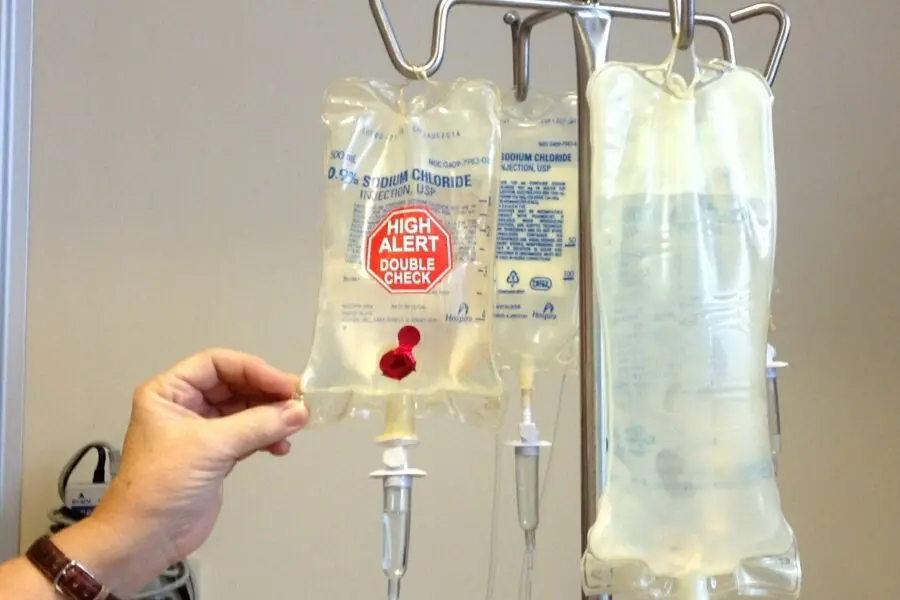- Home
- Medical news & Guidelines
- Anesthesiology
- Cardiology and CTVS
- Critical Care
- Dentistry
- Dermatology
- Diabetes and Endocrinology
- ENT
- Gastroenterology
- Medicine
- Nephrology
- Neurology
- Obstretics-Gynaecology
- Oncology
- Ophthalmology
- Orthopaedics
- Pediatrics-Neonatology
- Psychiatry
- Pulmonology
- Radiology
- Surgery
- Urology
- Laboratory Medicine
- Diet
- Nursing
- Paramedical
- Physiotherapy
- Health news
- Fact Check
- Bone Health Fact Check
- Brain Health Fact Check
- Cancer Related Fact Check
- Child Care Fact Check
- Dental and oral health fact check
- Diabetes and metabolic health fact check
- Diet and Nutrition Fact Check
- Eye and ENT Care Fact Check
- Fitness fact check
- Gut health fact check
- Heart health fact check
- Kidney health fact check
- Medical education fact check
- Men's health fact check
- Respiratory fact check
- Skin and hair care fact check
- Vaccine and Immunization fact check
- Women's health fact check
- AYUSH
- State News
- Andaman and Nicobar Islands
- Andhra Pradesh
- Arunachal Pradesh
- Assam
- Bihar
- Chandigarh
- Chattisgarh
- Dadra and Nagar Haveli
- Daman and Diu
- Delhi
- Goa
- Gujarat
- Haryana
- Himachal Pradesh
- Jammu & Kashmir
- Jharkhand
- Karnataka
- Kerala
- Ladakh
- Lakshadweep
- Madhya Pradesh
- Maharashtra
- Manipur
- Meghalaya
- Mizoram
- Nagaland
- Odisha
- Puducherry
- Punjab
- Rajasthan
- Sikkim
- Tamil Nadu
- Telangana
- Tripura
- Uttar Pradesh
- Uttrakhand
- West Bengal
- Medical Education
- Industry
MetS Increases Mortality Risk in Stroke Patients After Intravenous Thrombolysis: Study

A new study from Shanxi Bethune Hospital revealed that metabolic syndrome (MetS) significantly worsens outcomes in patients with acute ischemic stroke (AIS) who receive intravenous thrombolysis (IVT). The findings were published in the recent issue of Frontiers in Neurology.
This prospective cohort study from January 2022 to December 2023, examined 292 AIS patients who underwent IVT. The participants were divided into 2 groups as those with MetS and those without, and used propensity score matching to control for baseline differences such as age, sex, and stroke severity.
Within three months of treatment, the all-cause mortality rate in patients with MetS was 24%, more than double the 11.6% mortality observed in patients without MetS. Even after adjusting for potential confounding factors, MetS remained an independent predictor of death, with an adjusted hazard ratio of 2.50 (95% CI: 1.35–4.60, p < 0.01). This suggests that the patients with MetS were 2.5 times more likely to die within 3 months of stroke, despite receiving timely thrombolytic therapy.
Beyond mortality, MetS also predicted worse recovery and higher complications. Patients with MetS were significantly less likely to achieve a good functional outcome (defined as a score of 0 to 2 on the modified Rankin Scale), which indicated slight or no disability. The adjusted odds ratio for good recovery was just 0.47 (95% CI: 0.28–0.77, p < 0.01), reflecting nearly a 53% lower likelihood of favorable neurological recovery when compared to non-MetS counterparts.
Additionally, the risk of symptomatic intracranial hemorrhage (SICH) was notably higher in the MetS group. These patients had more than twice the odds of developing SICH (adjusted OR = 2.40, 95% CI: 1.17–4.92, p = 0.02), which can severely worsen outcomes or prove fatal.
Importantly, as the number of MetS components increased (including obesity, high blood pressure, high blood sugar, high triglycerides, and low HDL cholesterol), so did the risk of mortality. This hint that the cumulative metabolic burden directly impacts stroke prognosis. These findings suggest that even before a stroke occurs, controlling metabolic health could be crucial not only for prevention but also for improving survival and recovery afterward.
Reference:
Chen, W., Liu, D., Li, Z., & Zhang, X. (2025). Metabolic syndrome is associated with prognosis in patients with acute ischemic stroke after intravenous thrombolysis: a prospective cohort study. Frontiers in Neurology, 16. https://doi.org/10.3389/fneur.2025.1598434
Neuroscience Masters graduate
Jacinthlyn Sylvia, a Neuroscience Master's graduate from Chennai has worked extensively in deciphering the neurobiology of cognition and motor control in aging. She also has spread-out exposure to Neurosurgery from her Bachelor’s. She is currently involved in active Neuro-Oncology research. She is an upcoming neuroscientist with a fiery passion for writing. Her news cover at Medical Dialogues feature recent discoveries and updates from the healthcare and biomedical research fields. She can be reached at editorial@medicaldialogues.in
Dr Kamal Kant Kohli-MBBS, DTCD- a chest specialist with more than 30 years of practice and a flair for writing clinical articles, Dr Kamal Kant Kohli joined Medical Dialogues as a Chief Editor of Medical News. Besides writing articles, as an editor, he proofreads and verifies all the medical content published on Medical Dialogues including those coming from journals, studies,medical conferences,guidelines etc. Email: drkohli@medicaldialogues.in. Contact no. 011-43720751


